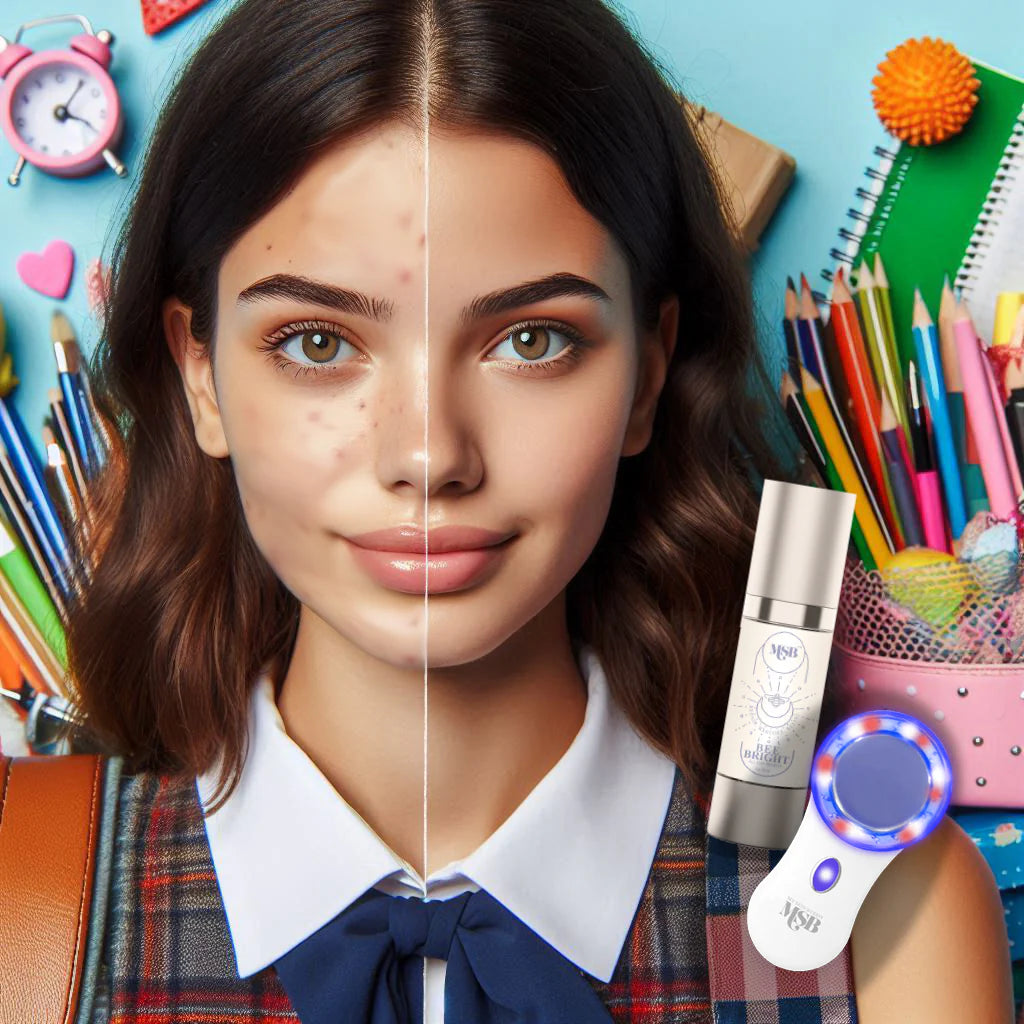Before we delve into the world of skincare and the vital role that exfoliation plays, it's essential to answer two foundational questions: what is exfoliation, and why is it crucial to our skincare routine? By examining these questions, we hope to unravel the significance of this skincare process and its profound impact on maintaining a radiant and youthful complexion.
Exfoliation is a skincare routine that involves the removal of dead skin cells from the stratum corneum, which is the outermost layer of the skin. The term might seem scientific, but don't let it intimidate you. In simple terms, it's the act of gently scrubbing off the old, tired cells to make way for the new, vibrant ones.
This critical process aids in accelerating a natural biological process known as desquamation. To put it simply, desquamation is our body's innate mechanism of shedding skin cells from the stratum corneum. As we age, like many other biological processes, desquamation tends to slow down. This slowing down can lead to a host of skin concerns, including clogged or enlarged pores, dull complexion, dehydration, and uneven skin texture.
A Key Player in Your Skincare Regimen
Exfoliating - a term we use to describe the process of sloughing off dead skin cells - isn't just about achieving a fresh and glowing look. It plays a much more crucial role in our skincare routine.
Firstly, exfoliation stimulates our body’s natural regeneration processes. Imagine a garden bed filled with old, withered leaves. If we don't clear them away, the new sprouts struggle to push through to the sunlight. The same principle applies to our skin. By removing the layer of dead skin cells, we're allowing new, healthy cells to come to the surface, promoting a more youthful and glowing complexion.
Secondly, it increases the effectiveness of other skincare products. By clearing the skin's surface, we're allowing the beneficial ingredients from your skincare products to penetrate deeper into the dermis (the thick layer of living tissue below the epidermis ). This increased absorption can drastically improve the results of your skincare routine, making your skin appear smoother, healthier, and more radiant.
Furthermore, exfoliation is a non-negotiable step in our skincare regime. It plays a pivotal role in enhancing our body’s natural moisture factor. Proper and regular exfoliation can improve the skin's ability to retain moisture, resulting in plumper, healthier skin that is less prone to premature aging.
In conclusion, understanding and implementing exfoliation is a game-changer for your skincare routine. Not only does it promote healthier, brighter skin, but it also improves the effectiveness of your skincare products.
Unfolding the Mysteries of Exfoliation Techniques
As we continue our skincare journey, in our next blog post, we'll be delving deeper into the world of exfoliation techniques. We'll explore the differences between mechanical and chemical exfoliation, discuss the benefits of each, and help you identify the most suitable method for your skin type. We will also provide a guide on the frequency of exfoliation, as it varies depending on your skin type and the exfoliation method used.
So, stay tuned as we peel back the layers of this fascinating skincare process, revealing insights and tips to help you achieve your skin's best potential and maintain a healthy, radiant complexion.





